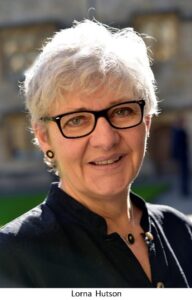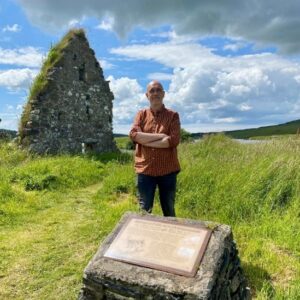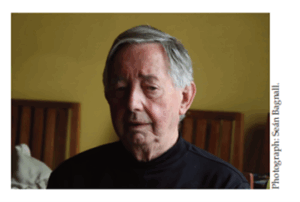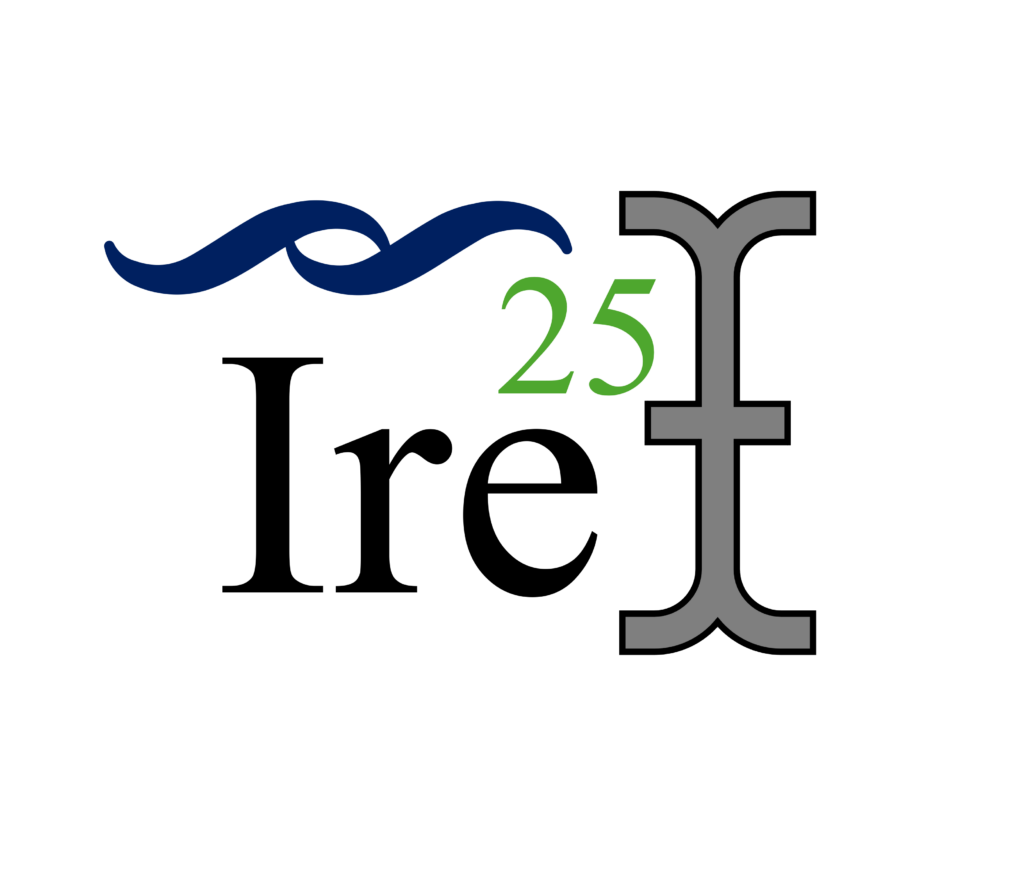– KEYNOTE SPEAKERS –
Fiona Farr
Christopher Morash
Lorna Hutson
Andrew Newby
Invited Poet: Desmond Egan

Fiona Farr is Professor of Applied Linguistics and TESOL in the School of Modern Languages and Applied Linguistics at the University of Limerick, Ireland, where she is Director of the Centre for Applied Language Studies. Her key areas of expertise are teacher education, reflective practice, continuous professional development, applied corpus linguistics, and technology-enhanced language learning. She has published widely in high impact journals in her field and is author of Teaching Practice Feedback: an investigation of spoken and written modes (2011, Routledge) , Practice in TESOL (2015, Edinburgh University Press), Social Interaction in Language Teacher Education (2019, Edinburgh University Press, with Farrell and Riordan), and The Reflective Cycle of the Teaching Practicum (2023, Equinox, with Farrell) and contributed as an author to Knight, D. et al. (2024). Corpus Linguistics for Virtual Workplace Discourse, New York and London, Routledge. She is co-editor (with Bróna Murphy) of the EUP Textbooks in TESOL Series, and is Associate Editor of the Journal Second Language Teacher Education. She is also co-editor (with Liam Murray) of the Routledge Handbook of Language Learning and Technology (2016, 2nd edition 2026). She has been Adjunct Professor at the Inland Norway University, Hamar, (2022-2024) and Visiting Research Scholar at Lancaster University and Queen’s University, Belfast. She has also led and taken part in a number of national in international projects including Digilanguages (2016-2017), Shout4HE (2018-2021), and Interactional Variation Online (2021-2024) (https://ivohub.com/).

Christopher Morash is Seamus Heaney Professor of Irish Writing at Trinity College, Dublin. With research interests ranging widely across the field of Irish literary and cultural studies., he has published extensively on Irish theatre, including a standard history, as well as a theorical work on theatre space and is also the editor of the Cambridge History of the Irish Novel (forthcoming early in 2026). Pursuing simultaneous interests in technology and culture, he has published on the transatlantic telegraph, not to mention the only synoptic history of Irish media to range from the 16th century to the 21st century. Perhaps best known for his work on literary Dublin arising out of his book, Dublin: A Writer’s City (2023), and the many publications and addresses which have come in its wake, he has nevertheless sustained a long-established interest in Yeats (resulting most recently in monograph on his theatre and theatre theory), as well as a concern for Irish Famine writing (which goes back to the 1990s). In the forefront of his current activities, however, is a collaborative project on ‘Attention’, which he frames for the purposes of the present conference as follows:
“The publication of John Guillory’s On Close Reading earlier this year signals a renewed interest in the practice of close reading in literary studies, often attributed to what is perceived as a growing culture of distraction, even a ‘distraction economy.’ Drawing in part on collaborative work with two colleagues (Ronan McDonald of Melbourne, and Shane O’Mara, Professor of Experimental Brain Research in TCD), this talk takes the form of four short lectures, tracing the prehistory of the current sense of crisis, and its legacy in Irish writing.”

Lorna Hutson is the Merton Professor of English Literature at Oxford. She has taught at London, Hull, Berkeley and St Andrews. Her books include Thomas Nashe in Context (1989), The Usurer’s Daughter (1994), The Invention of Suspicion (2007), Circumstantial Shakespeare (2015) and England’s Insular Imagining (2023). She is editor of The Oxford Handbook of English Law and Literature 1500-1700 (2018) and co-editor, with Victoria Kahn, of Rhetoric and Law in Early Modern Europe (2001) and has edited Ben Jonson’s Discoveries (2012). She is a Fellow of the British Academy, has held Guggenheim and Leverhulme Fellowships and has won Bainton and Saltire Prizes for research.

Andrew G. Newby is Senior Lecturer in Transnational and Comparative History at the University of Jyväskylä, Finland. Specialized in the history and society of Europe during the “Long Nineteenth Century” (especially Irish history in comparative or transnational perspective), he holds concurrent Docentships in European Area and Cultural Studies (University of Helsinki, 2008) and Transnational and Comparative History (Tampere University, 2021). Between 2012 to 2017 Andrew was the Principal Investigator of the Academy of Finland project, “‘The Terrible Visitation’: Famine in Finland and Ireland, c. 1845-1868”, and has held research positions at the Institutes of Advanced Study in Helsinki, Aarhus, and Tampere, as well as lectureships in the universities of Edinburgh and Aberdeen. Books include Ireland, Radicalism and the Scottish Highlands (EUP, 2007); Michael Davitt: New Perspectives (edited with Fintan Lane, 2009); Éire na Rúise: An Fhionlainn agus Éire ar thóir na Saoirse (Coiscéim, 2016); Finland’s Great Famine, 1856-1868 (2023); and An Fraoch Trí Thine! Micheál Mac Daibhéid, Conradh na talún agus Garbhchíocha na hAlban 1870-1887 (forthcoming, 2025).

Desmond Egan has published many Collections of Poetry (including, most recently, Laptop in 2024), 3 of Prose Essays, and 2 Translations from the Greek of plays by Sophocles and Euripides. 25 Collections of his work have been published in translation, across Europe and world-wide. Various Awards include The Irish Books and Media (IBAM) 2017 Award for Literature; The National Poetry Foundation of USA Award; and others. Hon. President, The Classical Society of Ireland 2004; Hon. Doctorate in Literature from Washburn University 1996. DVD Documentary published in USA and broadcast on PBS Television. Artistic Director, The G. M. Hopkins Annual Festival in Newbridge College.
Books by Desmond Egan include: Epic, ‘An important Collection’ (Thomas Kinsella); A Song for My Father, ‘Moving poems’ (Samuel Beckett); Elegies, ‘The work of a major poet’ (Brian Arkins); Hopeful Hopkins: Essays, ‘A new phase in Hopkins studies … an admirable and careful reading’ (Alex Assaly); Rogha/Choice, translations by Michael Hartnett, ‘A book to be grateful for’ (Gabriel Fitzmaurice); Complete Poems, ‘Makes me think we have moved beyond even the achievement of Seamus Heaney’ (Hugh Kenner); Seeing Double, ‘In Egan almost every poem has a metaphysical aspect. He is, for me, the most remarkable poet writing in English’ (Birgit Bramsbäck); Philoctetes: A translation of Sophocles’ play, ‘Rare fidelity to the source language in an emphatic modern register – a remarkable achievement’ (Brian Arkin).
